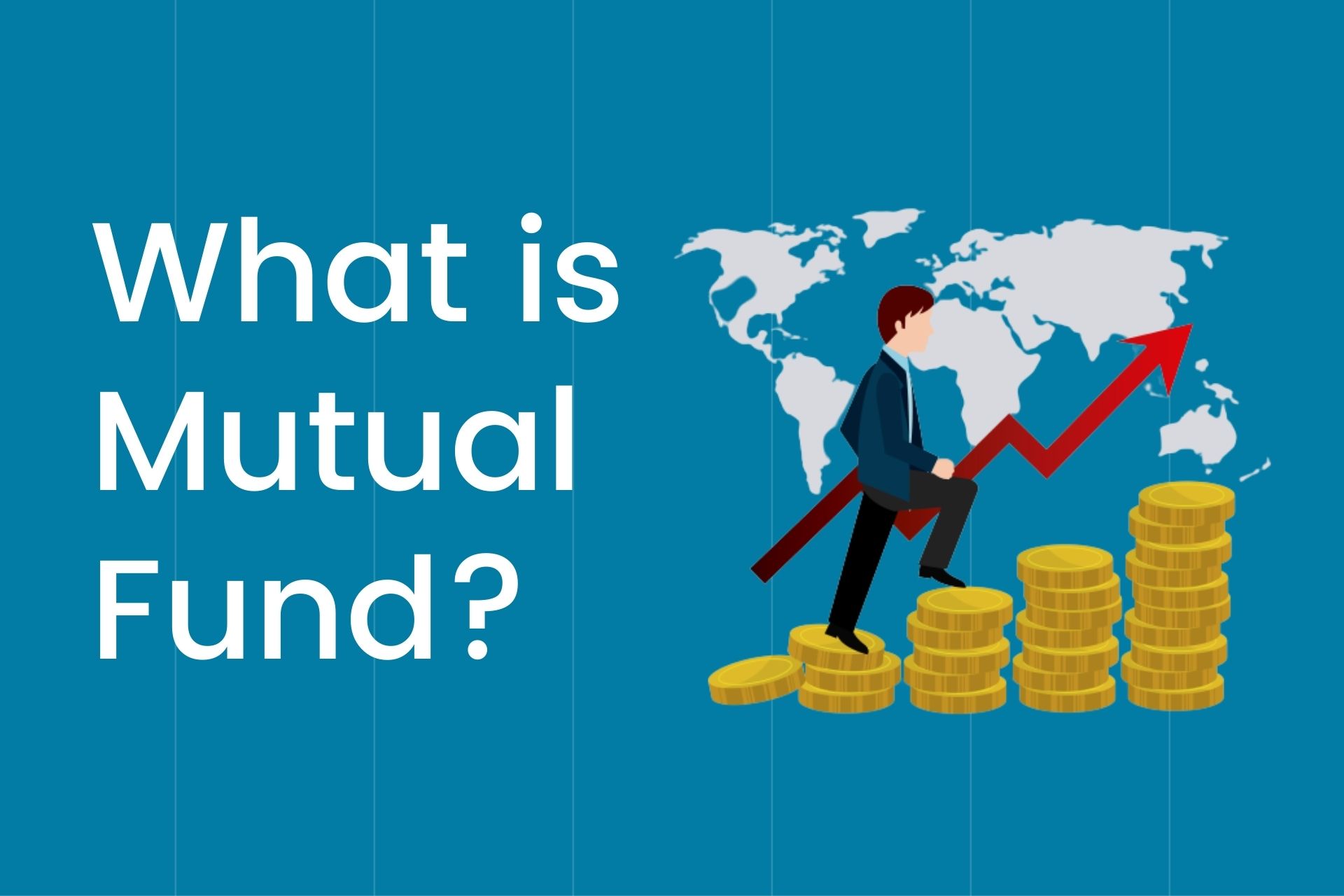
Mutual Funds (MF)
A mutual fund is a pool of money managed by a professional Fund Manager. It is a trust that collects money from a number of investors who share a common investment objective and invests the same in equities, bonds, money market instruments and/or other securities.
These are the investor’s favourite investment options. All the investors’ contributions are collected and managed by professional money managers who allocate these amounts into different securities and attempt to produce good returns. This is done as per the investment objective and a portfolio is structured. It is a great instrument for those small or individual investors who don’t have access to daily knowledge of the market. MFs invest money into various assets and securities, so returns are derived by the aggregating performance of all the underlying investments.
Types of Mutual Funds
There are various types of mutual fund schemes with different portfolios and returns.
- Equity Funds: The biggest category is equity or stock funds. There are various types of equity suited to every type of investor. Some are based on the size of the companies: small, mid or large cap, while others are based on the investment approach: aggressive, income-oriented, value and others.
- Fixed Income Funds: The MFs that focus on investments with a fixed return on investment come under the fixed income funds. These include government bonds, corporate bonds or other debt instruments. They are also called bond funds and are often bought at a low value and sold at a profit. They may pay a bigger return but are not risk-free. Government securities are much safer as compared to corporate bonds, so the risk wholly depends on the type of bond being invested in.
- Index Funds: Those investments wherein the finance managers invest the amounts by buying stocks constituted in an entire index such as the Nifty. This strategy is based on the idea that it is hard to consistently beat the market and hence, play with the market. Rise when it rises and vice versa. Index fund investments also require less research.
- Balanced Funds: When the investment consists of various securities like stocks, bonds, money market instruments and more, it is called balanced funds. The strategy is to reduce the risk. It is also called an asset allocation fund. Some of these have a specific allocation strategy so that the market is more predictable for the investors, lowering risks, while others allow for more dynamic allocation, meant to yield higher returns and are not defined by time period, percentages or fixed balance ratios.
- Money Market Funds: These are risk-free, short-term debt instruments like government treasury bills. It is a safe place to invest your money, even though the returns may be lower. The typical return is an amount higher than the interest earned in your bank’s savings account.
- Income Funds: These are invested to provide income on a steady basis & are invested in government and high-quality corporate debt. These bought bonds are held till maturity. It is best for conservatives or retirees who want a steady cash flow, but tax-conscious investors need to stay clear of these.
- International/Global Funds: As the name suggests, international or foreign funds invest only in stocks that are from outside the country, while global funds are invested in from across the world including from the home country. The world market has been very volatile in the past, but investing in these can mean a more well-balanced portfolio and negate some risk as shares from outside the country will move separately from those within as they are not related.
- Speciality Funds: This category is a more all-encompassing category that is constituted by all the funds that have been popular but don’t belong to any rigid categories like the above. Sector Funds are aimed at specific sectors in the economy. These can be high risk and move up and down together as many parameters may match. On the other hand, Regional funds focus on specific geographies. Then there are Socially responsible or ethical funds that invest only in companies that meet certain sustainability criteria.
- Exchange Traded Funds (ETFs): The ETFs are a popular investment vehicle that employs strategies similar to those of MFs, but is structured as investment trusts which are also traded on the stock exchange, but with added beneficial features of stocks. They can be bought and sold at any time in the trading day, they can be sold short, purchased on margin and carry lower fees. They are more effective, more liquid and enjoy tax benefits.
Mutual Funds are safe Investment
MFs are a great investment tool that is especially beneficial for small or medium individual investors. Some of the main reasons to want to invest in these are:
- They are completely safe, not absolutely risk-free but regulated and supervised by SEBI and AMFI.
- They offer diversification. One of their main attractions is ownership of various stocks and types of stocks available in the market, making investments safer.
- They are professionally managed. While you may still follow and make decisions as per your study of the market, the investment is managed by professional finance managers who are legally responsible to do research and invest soundly, to try to achieve your financial goals.
- There are various types of mutual fund schemes available for you to choose from.
- They are accessible, highly liquid and also offer auto-reinvestment.
- They offer transparency and are very beneficial in the long run.
Mutual Funds Working
When an investor buys the shares of a company, he is partaking in buying a small percentage of ownership of the company. Hence, this makes MFs both an investment as well as an actual company. A mutual fund investor is buying partial ownership of the investing company and its assets, wherein the nature of business is a financial investment. Investors earn returns in three main ways:
- The portfolio consists of stocks that earn dividends and bonds that earn interest. The distribution consists of almost all the income earned over the year and gives investors a choice to take it out or reinvest the earnings in more shares.
- If the securities in the fund are sold at an increased price, it is a capital gain for the investors. These are also earned during distribution.
- If the fund holdings increase in price but are not sold by the financial manager, the share prices increase and can be sold for a profit in the market.
The financial or investment manager always works in the best interest of the investors as he is obligated to do so legally. An MF company will have very few employees, consisting of the manager, a research analyst, an accountant and a compliance officer. Some may hire an attorney as well to make sure they comply with government regulations.
Advantages of Mutual Funds
- Diversification: One of the biggest advantages is the complete mix of assets within a portfolio that helps in reducing the overall risk. This diversification really helps in making the portfolio well-rounded, with good returns and reduced risks. The actual diverse portfolio will have a mix of securities with different capitalizations, industries and bonds with distinguished maturities and buyers.
- Easy Access: These are super easy to both buy and sell, especially while trading on major stock exchanges. They are highly liquid investments as well as the easiest way to invest in certain assets like foreign equities.
- Transparency: MF companies are regulated and supervised by the Securities and Exchange Board of India (SEBI) as well as the Association of Mutual Funds in India (AMFI) making their work both transparent and safe.
- Economies of Scale: They provide economies of scale as investing in one mutual fund comes with one fee amount that builds a diversified portfolio, whereas buying each security separately would cost a lot more money. Also, a small amount can be invested as mutual funds invest a pool of money brought in by various investors.
- Professional Management: As MFs are invested in through professional financial managers, that person takes care of all the important research and analyst work to provide skilful trading. They bring to the table expertise, and full-time monitoring of the market and are inexpensive.
- Freedom of Choice: All MF market investors have the freedom to select from various managers and a variety of differently styled portfolios that provide different end results when it comes to investment goals.
Disadvantages of Mutual Funds
- Fluctuating Returns: Mutual Funds do not guarantee any returns and may even face losses. The prices fluctuate along with the stock that together makes up the funds. Mutual funds are not backed up by the FDIC (Federal Deposit Insurance Corporation).
- Cash Drag: As mutual funds are a pool of money formed through various investors, a large part is bought and sold on a daily basis into a single fund. So as to maintain this volume of withdrawals on a daily basis, a large portion of the portfolio is in cash, which is not receiving any returns as it sits there. This is done to maintain liquidity in mutual fund companies. This is called cash drag.
- High Costs: Mutual funds are handled by professional management. All investment decisions are made by this person. This person takes a percentage of the earnings or pre-decided fees from the investor apart from transaction fees which results in higher costs. These costs need to be paid whether a profit is made or capital is lost.
- Diversification and Dilution: When a mutual fund strategy is too diverse and implies too many complexities, the results are worse. Many managers tend to overcomplicate matters by mixing too many funds that are related to each other, hence increasing the risk. There are also managers who make a very non-diversified portfolio, which can also mean higher risks. This happens when the investment goal is not very clear.
- Active Fund Management: Many investors question the research and intelligence of their money managers because at the end of the day there is no guarantee and not every manager is great every single time, but he will be paid every single time, which means losses for the investor. Actively managed funds incur higher fees, while a lot are investing in index funds which are available to individuals as well.
- Lack of Liquidity: Mutual fund redemptions usually take place at the end of the trading day and there cannot be an immediate in and out transfer during the middle of the working day which makes these funds less liquid than most equity.
- Taxes: Post selling equity, a tax on capital gains is induced in mutual funds, which must be kept in mind while investing.
- Evaluating Funds: Analysing and researching share market funds can be very difficult. Mutual funds do not offer the investor the opportunity to make comparisons using sales growth, EPS, P/E ratio or any other important data, given the diversity of the portfolio. Only index funds provide this benefit.
Benefits of buying MF Online
There are many online financial instrument investment platform that strives to make every investor’s journey easy and stress-free. Some benefits of mutual funds being bought through online are:
- Recognized platform that is regulated by SEBI and AMFI.
- Paperless signup, purchase and sale.
- One place review and research on all financial instruments.
- Account space where you can keep an eye on all your investments in one place as well as follow the market which means less dependency.
- Easy analysis of Mutual Funds.
- As secure as your bank.
- Optimised fee structure.
- Best, most accurate and instantaneous calculators.
- More trustworthy with more control in your hands.
Mutual Funds for Beginers
Mutual funds are an important tool for investment. Here is a step-by-step guide on how to invest in them:
- Understand all the risks involved before investing. Every mutual fund accounts for some amount of risk. The rule of thumb here is that equity, especially mid and small-cap are generally high risk and promise higher returns whereas, debt funds are low risk with more stable returns.
- Make an investment objective before you make your choice. Think about how much you can invest and for how long. There are many options, making them flexible.
- Do not get fixated on the NAV figures because NAV does not matter as it has no bearing on future performance.
- Diversify all your investments over time. Handle your risk with a more diverse portfolio that has a mix of equity and debt funds.
- Make a long-term strategy. In the short term, equity markets can be very volatile, so an investment plan of over 5 years at the very least is more beneficial.
- Once you have invested, do not forget about your investment. Monitoring them periodically is the key to success. Make expectations and see if your expectations are being met and if this mix is lucrative to you.
Financial and Business expert having 30+ Years of vast experience in running successful businesses and managing finance.





